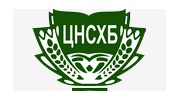Merl S. Why the Soviet Union under Khrushchev and Brezhnev failed with the complex mechanization of agriculture: International aspects (1953–1986) // The Russian Peasant Studies. 2020. V.5. №4. P. 78-117.
DOI: 10.22394/2500-1809-2020-5-4-78-117
Annotation
The article provides archival evidence to the argument that complex mechanization after 1953 was a failure (Merl, 2020). International contacts were quickly restored after Stalin’s death. They made evident to what extent the Soviet Union had fallen behind the West in agricultural technology and reliability of machinery. The article describes how successfully the Ministry of Agriculture collected information on Western technology. Already in 1955, models of the Western agricultural machinery, seeds, highly productive breeds, chemicals, and feed were imported to be tested in the Soviet conditions. The expectation was that the Soviet industry would use this knowledge to improve the quality of its agricultural machinery, which would determine a significant decrease of labor input and costs, and an increase in productivity. However, only few advanced machines were delivered—with long delays—to the state and collective farms. There was no ‘green revolution’ that increased yields and agricultural productivity with scientific data. No bottle necks in provision of feed and transport, and in reduction of harvest losses were overcome between 1955 and the founding of Gosagroprom. The Gosplan and the State Committee of Science and Technology systematically ignored the decrees of the Central Committee and the Council of Ministers, following the Ministry of Agriculture’s recommendations to produce improved technology. They refused to give priority to the agricultural development for modernization of the outdated Soviet agricultural machinery industry would have required huge investment. Since the mid-1960s, the Ministry of Agriculture tried to make the block partners produce at least part of the machinery needed by the Soviet agriculture. These efforts also included the exchange of delegations with Western countries, the USSR’s participation in international agricultural organizations, the ordered by Khrushchev cooperation with ‘less developed’ countries and within the Comecon.
Keywords
agricultural modernization, complex mechanization, Western technology, socialist industrialized agriculture, agricultural labor productivity, agricultural machinery, research cooperation, international agricultural associations, Khrushchev, Brezhnev
About the author
Merl Stephan, Dsc (History), Professor, Bielefeld University. 25 Universitätsstr., 33615, Bielefeld, Germany.
E-mail: This email address is being protected from spambots. You need JavaScript enabled to view it.
























